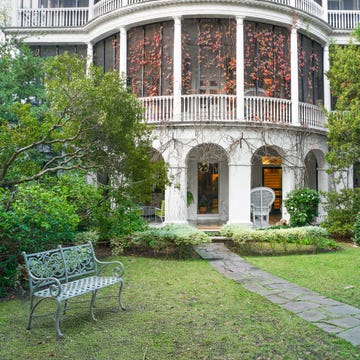Traveling is not the same for everyone. We are never the same person twice in one day, so how could we have the same tastes as others? I like Rome, my wife likes London, friends from Los Angeles with whom we like traveling prefer Paris. They like to book tickets to museums, like to reserve tables at restaurants, while I’ve always avoided programmed itineraries of any sort. What we share, though, is wanting something that only travel can offer and that occurs once we’re elsewhere and have an alternate hold on things, a different pair of lenses. What it is exactly is something we seldom disclose to others, because we’re not quite sure we can fathom it ourselves. Maybe this is why we travel, though we give it many names.
For me it came into focus one day in Orvieto, north of Rome. My wife is sleeping in late. She likes to do that when we travel. I don’t. I like to get up before anyone else does and amble down the narrow cobblestone lanes of whatever small town we’re visiting. I like to improvise my walk and hear people greet each other in the morning. I like their makeshift pleasantries, from baker to pharmacist to newspaper vendor. And I don’t mind getting lost.
I’ve already read up a bit on the Orvieto wines, know a few things about the cathedral, il duomo, and about Teatro Mancinelli, the scaled-down but lavish opera house. I’ve learned about the tunnels dug under the impregnable rock over which Orvieto was originally built. I don’t like tunnels and will most likely sit quietly by myself while they all visit the city’s underground.
This morning I proposed to meet one of my friends early in a café located to the left of the duomo, which, as I learned from her, was admired by none other than John Ruskin and Charles Eliot Norton.
She is late arriving, so while I wait I order a cornetto and a caffè latte. All but one other table is occupied, and a man, sitting in the shadow of the meager hedge bordering the café, is quietly reading his paper, something I suspect he’s been doing every morning for years. Occasionally I can hear it rustle when he turns a page, or when the flimsiest draft flutters through it. Otherwise not a ripple in this placid, sunlit square.
This is the soundless hour, and it exists in all small towns in Italy. Everyone respects it. No cell phones, no dogs, no babies, and no tourists. All these will show up—but not just yet. It’s Saturday, and the people of Orvieto are not in any haste this morning. The carpenter who seems to be a direct descendant of medieval guild members stands outside his shop with a lit cigarette, which he clearly doesn’t want to put out and which gives him the thoughtful, meditative air of an Italian Einstein still working on the theory of relativity. He hesitates and is not indifferent to the stillness—no saws yet, no hammers, no thudding away, no drills or hand cranks, or the raspy clatter of his rolling shutters.
I love the stunning silence of the morning air here. An elderly man hobbles by, nods respectfully in my direction. I nod back, not a word. Someone is sweeping litter from the curbside. I can barely hear his broom, but I miss it when he walks away to another spot on the piazza. Silence.
As I wait I hear the distant clink of a spoon on a saucer, and sure enough the waiter appears with my cornetto and my caffè latte and the de rigueur glass of water. I can’t wait to devour the cornetto, and right away, before he has a chance to disappear behind the beaded curtain, I ask him to bring me another. If my friend arrives, I’ll say I ordered it for her; if she doesn’t I’ll eat it. Maybe this is why I begin to hope that she won’t arrive just yet. I don’t mind the wait and welcome another five or 10 minutes without anyone.
Being alone is an excuse for doing nothing, and doing nothing, like yielding to Orvieto’s morning, is exactly what I seek once I’m no longer tethered to my chaotic day-to-day life in New York. People think travel is about seeing new things. Not for me. I’m here for something that has almost nothing to do with sights, monuments, museums, restaurants, nature, or even people and their customs. What I’m looking for is more in me than outside of me, just as sitting in this café allows me not to stop time but to distend it, to dispel all my thoughts and indulge in the eros of something unusual. I want to forget time. I don’t like time. When was time ever my friend? I don’t even want Orvieto to give me something new. What I want, maybe, is to be given something back, some intangible something I believe I once cradled but lost track of and can scarcely remember. I’ll eventually take pictures of the duomo and of old Orvieto. But it’s the picture of the little café with its meager hedge, which separates it from the café across the way, that I’ll treasure. This, I’ll remember, is where I waited for a friend and suddenly caught a glimpse of the big paradox that defines my life: that I have always dreaded loneliness, but I love being left alone. Which is why I like waiting for my friend and don’t mind if she’s late. I want to show her the picture of what Orvieto means to me: a table, a caffè latte, a second cornetto waiting to be bitten into, and my half-emptied bicchiere d’acqua.
I know I’ll be thrilled to see her again, and I know we’ll laugh as we always do. I know we’ll spend a long time studying the cathedral this morning, because she likes to spend time in churches and I love to hear her tell me things I’m glad to learn from her. At some point she’ll ask me what’s new, and walking with my hands in my pockets I’ll remember the carpenter dawdling outside his store, and I’ll finally tell her that sitting for breakfast and waiting for her reminded me that I’d traveled thousands of miles to bask under the invisible spell of that one rare thing in our lives: plenitude. I felt richer that morning than I’d felt in a long time. Why, she’ll ask. Because I want for nothing here. Why leave, then? Why indeed? Neither of us wants to answer this question. But we know the answer: Part of us wants to stay here and never go back. The other part, thank heaven, refuses to think this through.
This story appears in the Summer 2023 issue of Town & Country.













